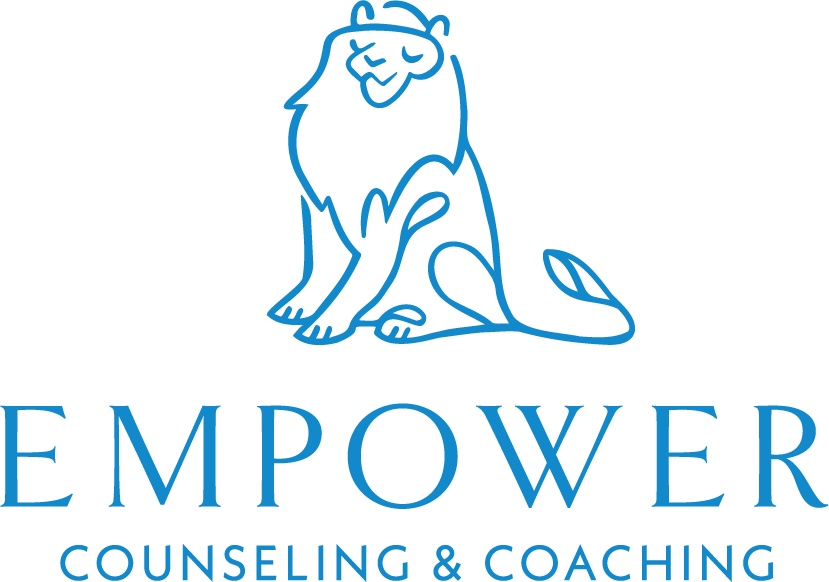
Anxiety Counseling for codependency: Empower Counseling Can Help.
What is codependency?
Codependency can come in many forms and there are many accurate definitions of codependency.
Melanie Beattie, author of Codependent No More calls codependency: “Allowing another person’s behavior to affect you and obsessing about controlling that person’s behavior”.
Earnie Larson defines it as, “A diminished capacity to initiate in, or participate in, loving relationships.”
John Bradshaw calls codependency “A symptom of abandonment-a loss of one’s inner reality and an addiction to outer reality”.
I like the succinctness of Charles Whitfield’s definition, “A disease of a lost selfhood.”
It shows up as a you depending on others’ words, behaviors, and moods. Codependent individuals look to their loved one’s words, mood, and behaviors to determine how they feel. For instance if someone you love seems happy when you are around, you feel happy. If the person you love seems down, you feel down, and rack your brain for ways you can “make them feel better”.
Codependent thoughts and behaviors cause intimacy and trust problems. Codependency interferes with open and honest communication. If you are constantly worried and feeling responsible for your loved one’s moods and feelings, you will be anxious and hesitant to share anything with that person that might be “upsetting”, including your own wants, feelings, and needs. You are more focused on the other person’s feelings, emotions, and happiness than your own. Codependency leads to dysfunctional boundaries as well. If you can not share open and honest dialogue for fear of upsetting your loved one, you definitely can not set boundaries protecting what is important to you.

What does codependency feel like?
Denial. Denial. Oh yeah, and DENIAL. You will deny that there are problems or the severity of the problems. You will deny your own needs, then deny the fact they are not being met.
Low self-esteem. The more you focus on what others think and feel, and what their behaviors mean, the less you think about yourself—your needs, your wants, your goals. If you are not focused on what you want and need, you will not take any action toward it. Those who have high self-esteem, have high self-esteem because they are taking action toward their values and goals. Self-esteem comes from being the person you want to be, doing the things the person you want to be does.
Codependency keeps you wrapped up in trying to control or manage someone else, to get the results or outcome you want.
If you are focused on the needs, wants, moods, thoughts and behaviors of someone else, you feel responsible for whatever results. Then when you get unwanted results, you feel guilt and shame.
Codependency feels like shame, guilt, anger, and resentment. And ultimately codependency feels like anxiety and depression.

How do you know if you are codependent?
If you have suffered trauma, you may be codependent.
If you are constantly worried about other people and their problems, you may be codependent.
If you bend over backwards not to hurt other peoples’ feelings, you may be codependent.
If you spend a lot of time thinking about the perfect time to have a difficult conversation or share difficult news, you may be codependent.
If you are a “people pleaser”, you may be codependent.
If you are in a relationship with an addict or a narcissist, you may be codependent (or most likely are).
If you avoid closeness, you may be codependent.
Codependency, Anxiety, and Depression.
If codependent long enough, the result is complete loss of self, anxiety and/or depression. When codependent, you are denying your authentic self. You are not thinking about or caring for your own needs. Worry is a daily habit, often to the point of creating the fight or flight response. Eventually you will wear yourself out physically, mentally, and emotionally, and have nothing left for yourself or anyone else. If you are worried about others and their problems, you are worried about things you cannot control. Worrying about what you can not control quickly turns into anxiety.

Codependency can be cured: Anxiety Counseling for codependency: Empower Counseling Can Help.
Untreated codependency can lead to severe anxiety, depression and physical health problems. The good news is, codependency can be cured.
Empower Counseling offers Acceptance Commitment Therapy for codependency. All three of our licensed counselors, Kathryn, Adam, and Kristine are trained in ACT, which is a proven effective higher level cognitive behavioral therapy. Through ACT, we will uncover any rigid rules and unhelpful thoughts you have that are causing your codependent thinking. Through self-compassion work, we will guide you to focusing on all of the positive aspects of who you are, so that you may begin focusing on what you have to offer the world. For ultimate recovery from codependency, we will do value work within the 8 domains of your life. You will become clear on what your value is and what you value in this world. Your values will be the guide to boundary setting and speaking up for yourself. The behavioral part of ACT, is taking action toward what you value. It is this action that will raise your self-esteem and build confidence in yourself again.
At Empower Counseling, we have seen so many clients who had no idea that they were suffering from codependency and that the codependency was driving their anxiety or depression. They simply come into our offices and say “I don’t know who I am”. We can help you find your way back to yourself.
Anxiety and codependency are not the only issues we treat at Empower Counseling. We use ACT for depression counseling, as well as, counseling for those difficult life transitions. At our Birmingham, Alabama counseling clinic, we offer in-person and online counseling for teens, counseling for college students, therapy for young adults, and counseling for professionals. In addition, Adam offers addiction counseling. It is simple to get started. Just reach out to Empower Counseling today thought the form on our home page.
